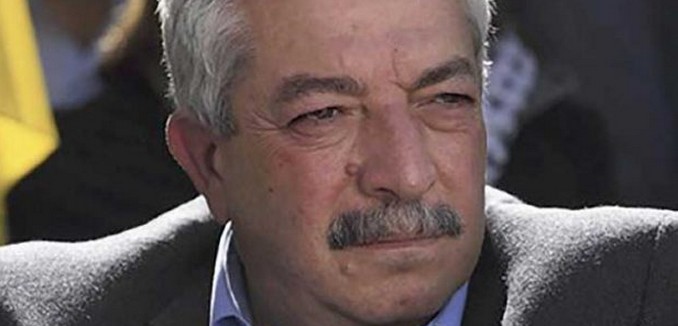Fatah has chosen a deputy leader for the first time in its history amid a protracted debate over the party’s leadership succession.
On Wednesday, the Fatah Central Committee voted 67-year-old Mahmoud Al-Aloul, also known as Abu Jihad, as deputy leader of the party. Al-Aloul was head of Fatah’s armed wing before following the group’s leadership from Tunis to the West Bank in 1995, after the Oslo Accords. He also served as the governor of the West Bank Palestinian city of Nablus for ten years and as Minister of Labor. In 2009 he was elected to the Fatah Central Committee.
Fatah leader and Palestinian Authority President Mahmoud Abbas has no successor in place, and Palestinian Basic Law states that were he to die or leave office, his position would be temporarily filled by Speaker of the Palestinian Legislative Council and Hamas member Aziz Dweik until elections could be arranged. In order to prevent this scenario, there has been talk that the Palestine Liberation Organization may create a vice president position in the coming months, with suggestions that the deputy Fatah chairman could fill this role.
Despite becoming the first deputy leader appointed since Fatah’s founding in the 1960s, there remains uncertainty as to whether al-Aloul is favourite to succeed Abbas. Abbas, 81, currently holds three positions – President of the PA, Chairman of the PLO, and leader of Fatah—the largest and most influential group within the PLO.
Another possible successor to Abbas to emerge Wednesday night was Jibril Rajoub, the former head of the Palestinian Preventive Security Force in the West Bank. Rajoub was elected as Fatah’s secretary-general, the third-most important position in the organisation.
During the Seventh Fatah Congress in December, Rajoub received the second-largest number of votes in the central committee election, second only to Marwan Barghouti, who is serving multiple life terms in an Israeli prison for murder and has also been touted as a potential successor to Abbas.
In December, approximately 1,500 delegates convened for the Seventh Fatah Congress to determine a political platform for the movement and to elect members to the 120-seat Revolutionary Council and to the 22-seat Central Committee.
(via BICOM)




